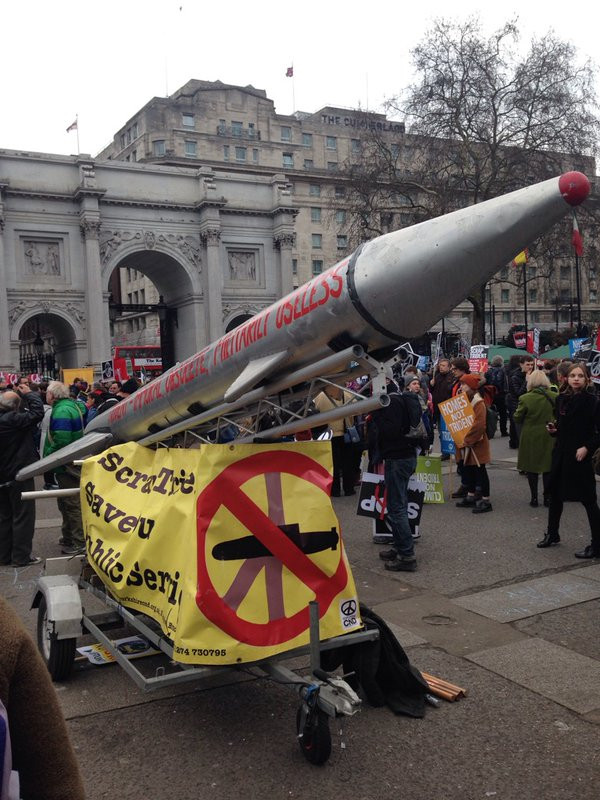British government will vote whether to replace Trident nuclear weapons on 18 July
David Cameron aims to capitalise on Labour's civil war to push renewal through.
The House of Commons will vote on whether to renew Britain's controversial, aging Trident nuclear weapons system on Monday, 18 July, the Prime Minister David Cameron has announced. It is a move which many commentators are suggesting has been made for tactical reasons, in an attempt to reunite the feuding Conservative party and take advantage of Labour's own internal turmoil.
The vote to replace the UK's four Vanguard nuclear submarines will take place shortly before Parliament's summer recess. The Trident submarines and weapons are something most Tory MPs agree needs to be replaced, though it's a much more divisive issue in the Labour party, whose right- and left-wing factions bitterly disagree on whether the UK should have nuclear weapons at its disposal.
The move is certain to colour Labour's impending leadership challenge, which seems set to kick off on Monday after Angela Eagle announced her intention to run against Jeremy Corbyn on Saturday. Corbyn, the current Labour leader, is strongly against renewing Trident, but elements of the parliamentary Labour party – including Eagle, who resigned as shadow business secretary last month – oppose his stance.
David Cameron announced the vote while at a two-day Nato summit in Warsaw, held on 8-9 July, where he described a replacement fleet of new submarines as an "essential deterrent" which was too important to entrust to his successor after he steps down as prime minister in September.
"The nuclear deterrent remains essential, in my view, not just to Britain's security but, as our allies have acknowledged here today, to the overall security of the Nato alliance," he said. "We need certainty about it so the investment decisions can go ahead, so I think it makes sense to hold this vote… now to put it beyond doubt."
Trident's replacement is expected to be deployed by the late 2020s at a cost of more than £20bn ($25.90bn), a price its critics suggest is too much to pay for a weapon which will never be used, except in the case of a global nuclear war. Corbyn has promised never to deploy nuclear weapons should be elected prime minister.
Trident submarines are currently based in Scotland, and with the EU referendum result putting a second Scottish independence referendum back on the table, basing Trident's replacement is also set to become an issue. The Clyde naval base, where Trident submarines are based, employs 7,000 people. A further 4,000 other people depend on the base for their income.

© Copyright IBTimes 2025. All rights reserved.






















